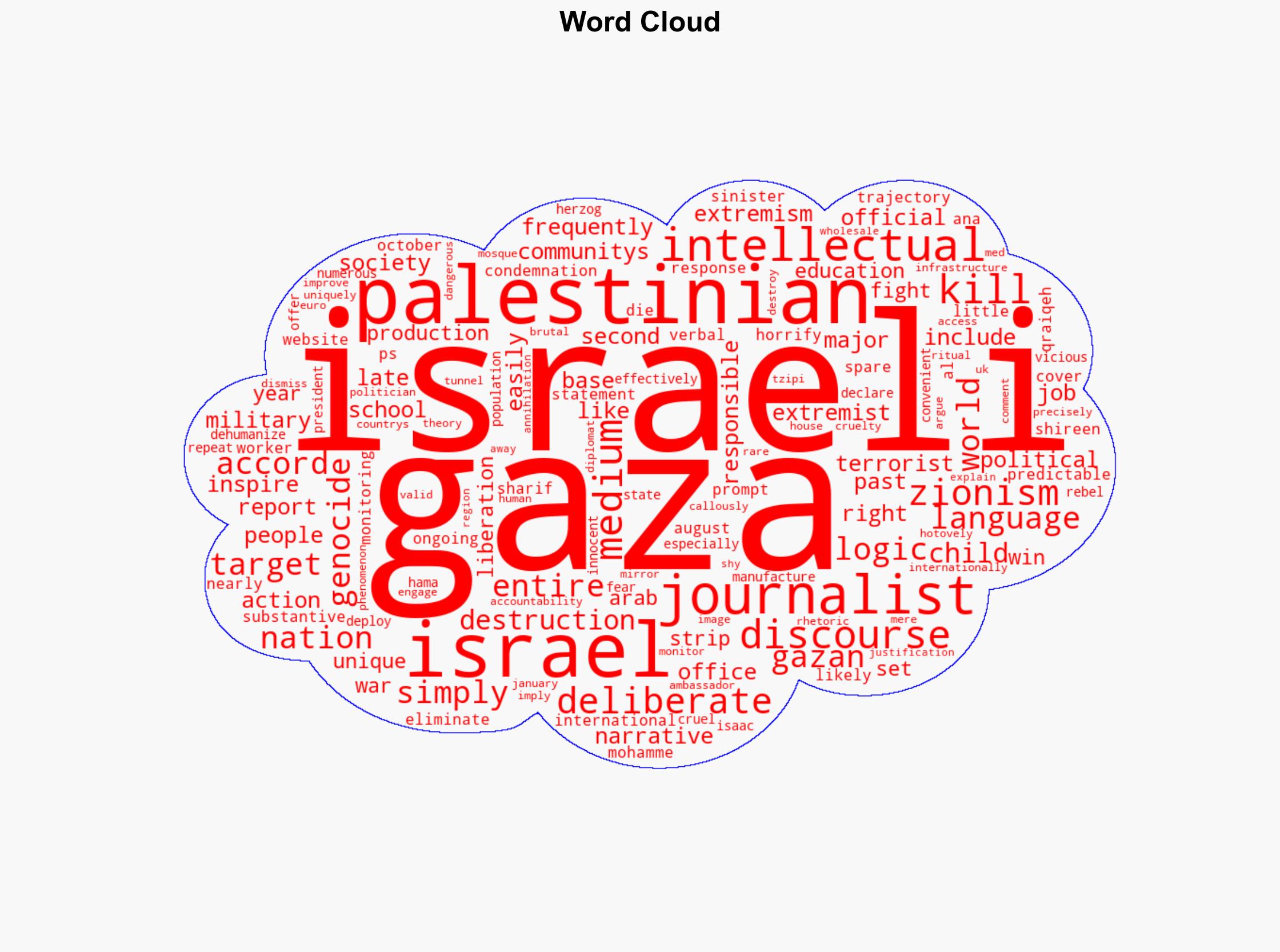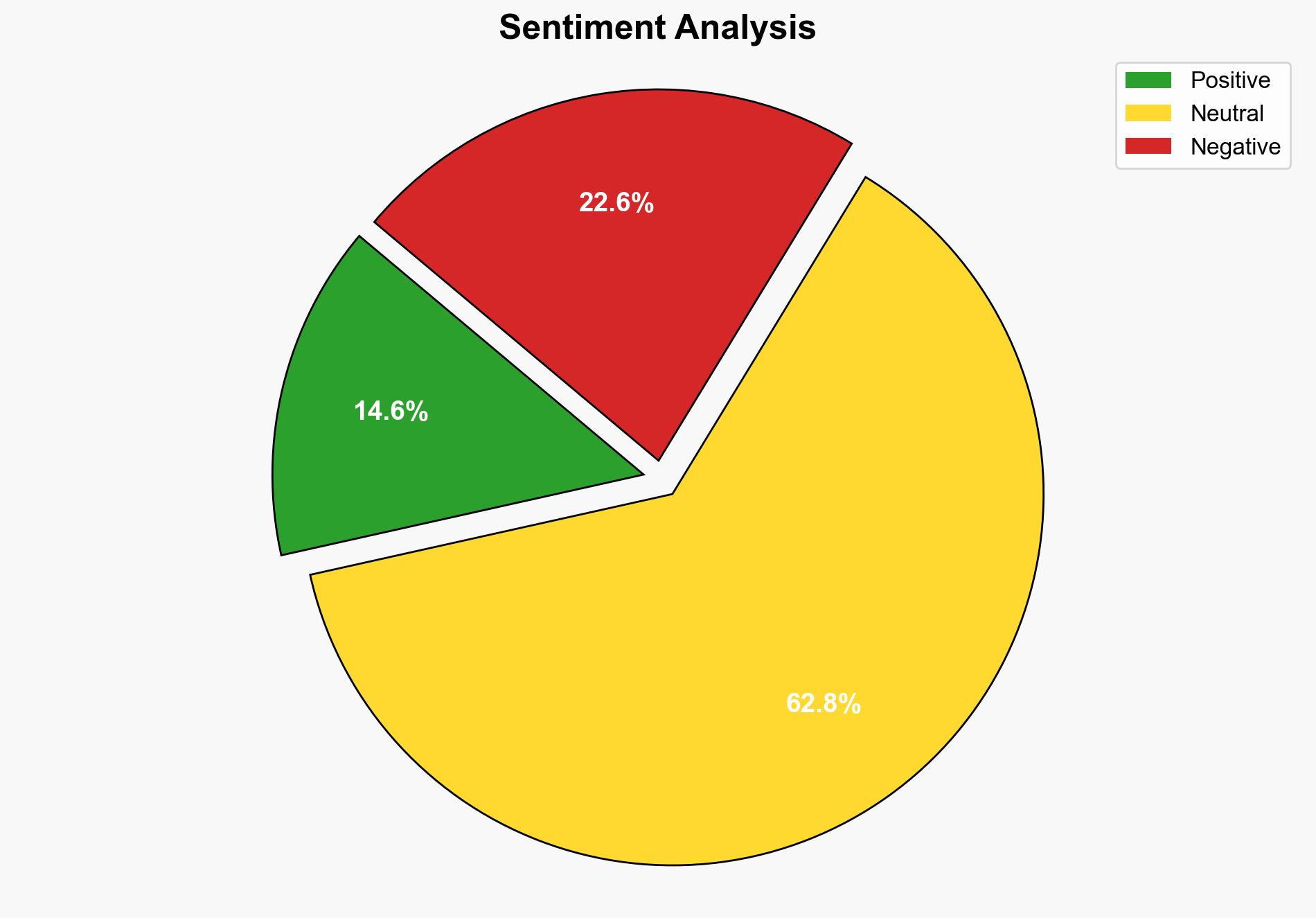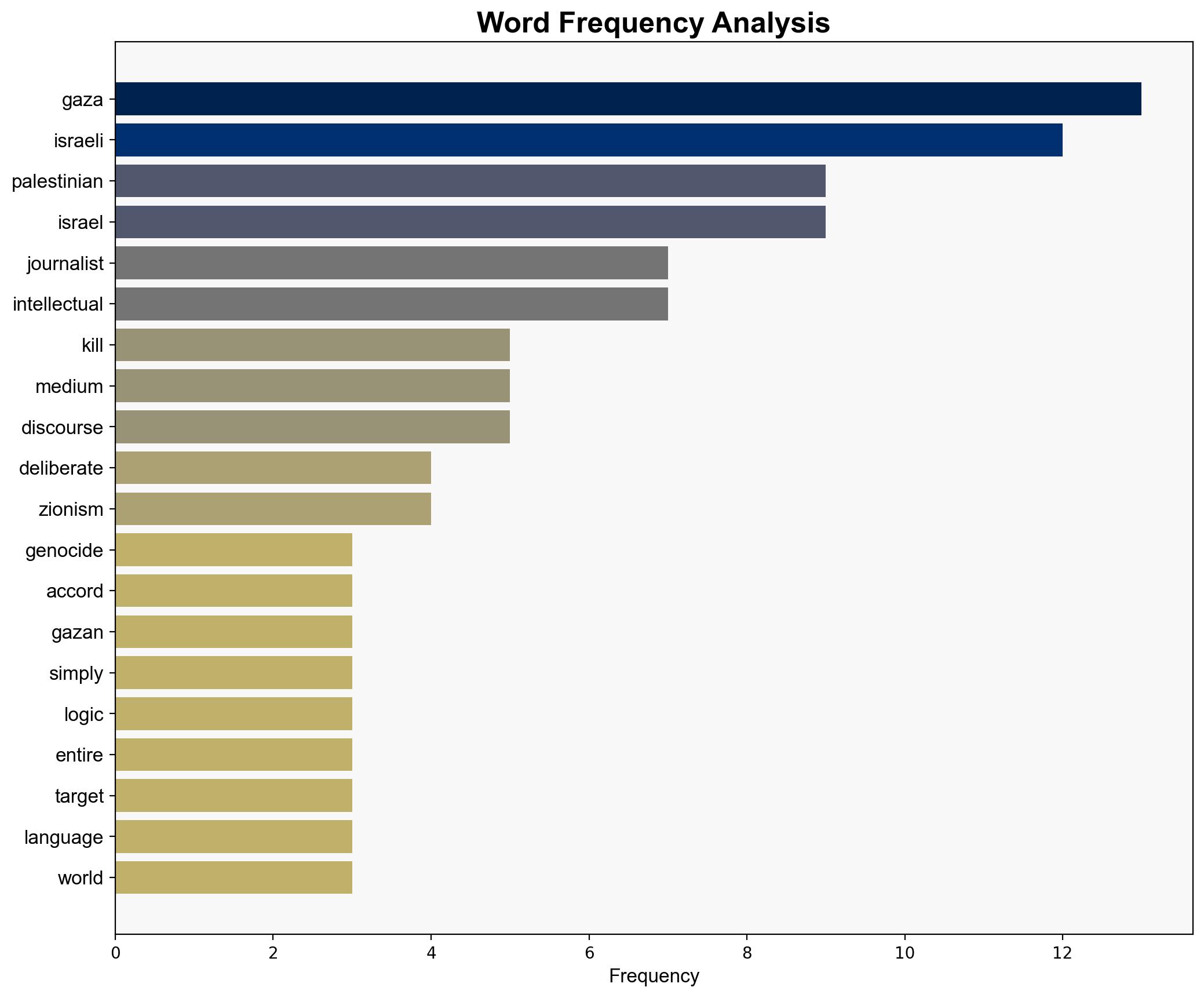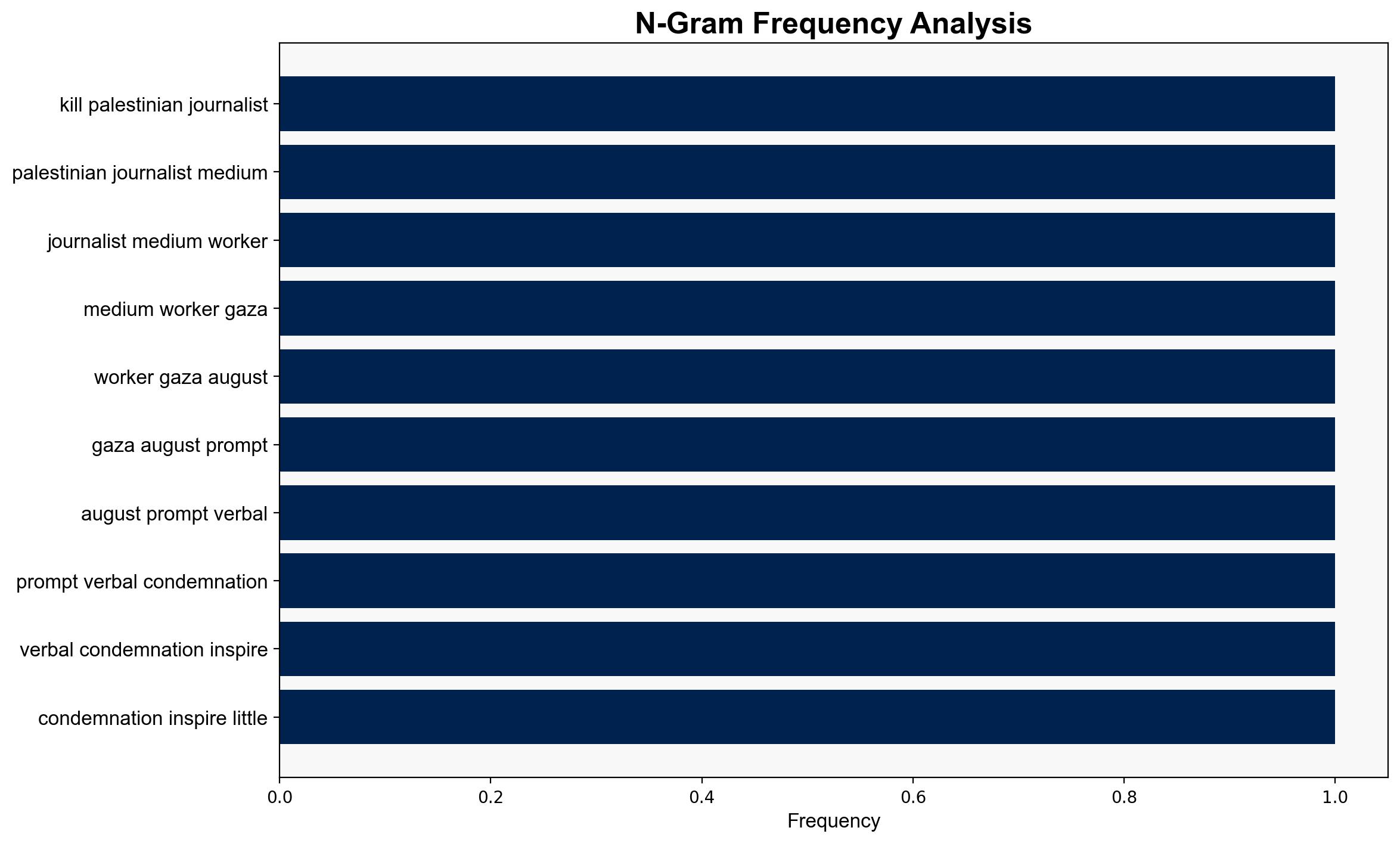The War on Truth Why Are Palestinian Journalists Being Systematically Erased – Antiwar.com
Published on: 2025-08-25
Intelligence Report: The War on Truth Why Are Palestinian Journalists Being Systematically Erased – Antiwar.com
1. BLUF (Bottom Line Up Front)
The analysis suggests a medium confidence level in the hypothesis that the targeting of Palestinian journalists is part of a broader strategy to suppress Palestinian narratives and intellectual leadership. An alternative hypothesis is that these actions are collateral damage in a broader military strategy. The recommended action is to increase international diplomatic pressure and independent investigations to ensure accountability and transparency.
2. Competing Hypotheses
1. **Hypothesis A**: The systematic targeting of Palestinian journalists is a deliberate strategy by Israel to suppress Palestinian narratives and intellectual leadership, thereby weakening Palestinian society’s ability to organize and resist.
2. **Hypothesis B**: The deaths of Palestinian journalists are collateral damage resulting from broader military operations targeting Hamas and other militant groups in Gaza, rather than a deliberate strategy against journalists.
Using Analysis of Competing Hypotheses (ACH), Hypothesis A is better supported by the evidence provided, particularly the statements from Israeli officials and the pattern of targeting intellectual and cultural figures. Hypothesis B lacks direct evidence of intent to avoid journalist casualties.
3. Key Assumptions and Red Flags
– **Assumptions**: Hypothesis A assumes a high level of coordination and intent in targeting journalists, while Hypothesis B assumes military operations are indiscriminate and not specifically targeting journalists.
– **Red Flags**: The source may exhibit bias, as it presents a one-sided narrative. There is a lack of direct evidence from Israeli military communications or independent investigations to corroborate either hypothesis fully.
– **Blind Spots**: The absence of detailed casualty reports and independent verification of incidents limits the analysis.
4. Implications and Strategic Risks
– **Geopolitical Risks**: Continued targeting of journalists could escalate tensions in the region and draw international condemnation, potentially leading to sanctions or other diplomatic actions against Israel.
– **Psychological Impact**: The suppression of media and intellectual voices could demoralize Palestinian society, impacting long-term stability and peace prospects.
– **Cascading Threats**: Increased radicalization and recruitment by extremist groups could occur if the perception of injustice and oppression persists.
5. Recommendations and Outlook
- **Immediate Action**: Advocate for international bodies to conduct independent investigations into journalist casualties in conflict zones.
- **Diplomatic Engagement**: Encourage dialogue between Israeli and Palestinian representatives to address media safety and freedom of expression.
- **Scenario Projections**:
– **Best Case**: International pressure leads to policy changes and improved protection for journalists.
– **Worst Case**: Escalation of violence and further suppression of media voices.
– **Most Likely**: Continued international condemnation with limited tangible change without increased diplomatic efforts.
6. Key Individuals and Entities
– Isaac Herzog
– Tzipi Hotovely
– Moshe Feiglin
– Ana Al Sharif
– Mohammed Qraiqeh
7. Thematic Tags
national security threats, media freedom, regional conflict, human rights, geopolitical tension




